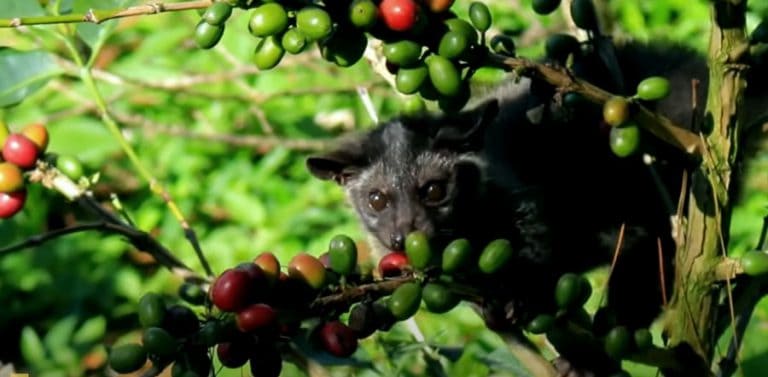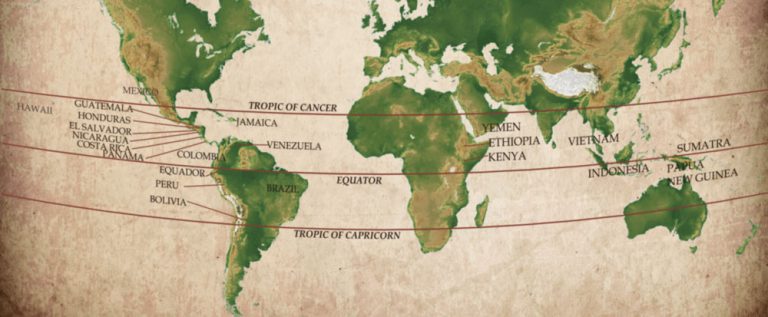Pachamama Coffee Review: Redefining Cooperatives in Coffee
The coffee farmers behind the success of Pachamama are bold and fearless. With the commodity price for coffee recently as low as $0.50 per pound, the third generation of coffee farms is dwindling and specialty coffee cultivation is not presently profitable to small farmers. As a result, farmers in Peru made the impossible possible by asking the question, “Why don’t we roast our own coffee?” The answer to this question kicked off the formation of Pachamama Coffee Company.
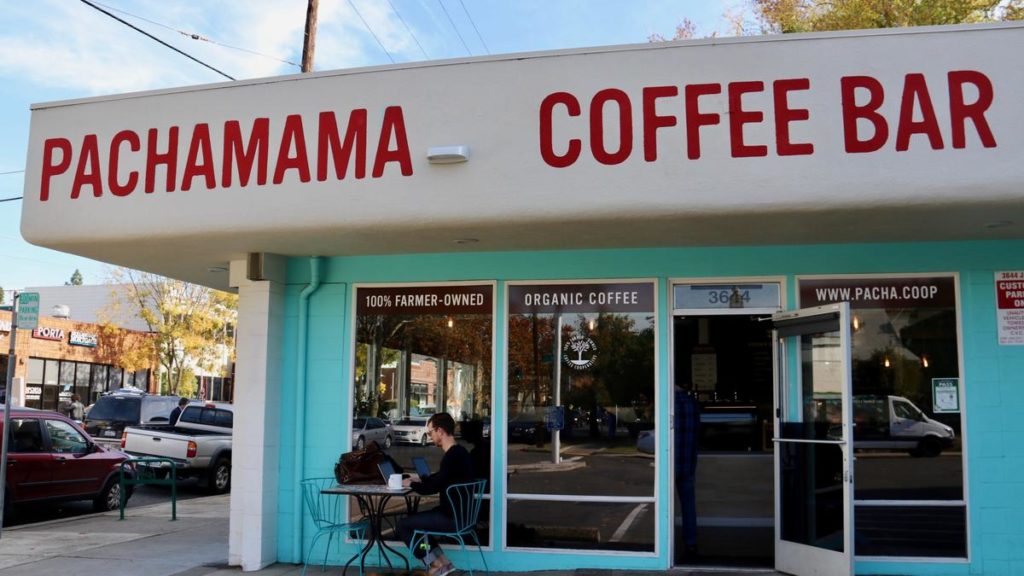
The story
The coffee industry is not welcoming to small coffee farmers. It’s a chaotic marketplace where even the slightest price shift can significantly affect simple coffee farmers. Despite this and with a passion for producing great coffee beans, these dedicated farmers persevered to cultivate the best beans for a delicious morning coffee. Hence, the formation of a coffee cooperative.
In 2003, the founding president of the Pachamama Coffee Cooperative, Raul del Aguila, led the coffee cooperative’s legal formation. The collective is composed of PRODOCOOP’s Merling Preza, Manos Campesinas’ Carlos Reynoso, and OCFCU’s Tadesse Meskela- and to jumpstart the business operations, the co-op hired Thaleon Tremain as its first employee.
Pachamama Coffee Cooperative managed to build its foundation from the niche found in the independent grocery market by 2006. And to ensure that coffee farmers were well-compensated, the cooperative introduced a World Bank-funded platform called Traceable Coffee- a platform that empowers consumers to “Tip the Farmers.”
By 2011, the cooperative started to offer direct-to-consumer subscription services to attract more coffee drinkers from different parts of the United States. In 2013, Pachamama ventured into retail and began roasting its signature coffee in a Sacramento, California coffee shop.
About
Coffee farmers in Peru, Nicaragua, Guatemala, Mexico, and Ethiopia founded the Pachamama Coffee Cooperative in 2003. While Thaleaon Tremain and co-founder Nicholas Brown launched this California-based federated cooperative to help farmers import, roast, and market the best Arabica coffee beans in the United States by 2006.
Pachamama buys coffee directly from the members of the cooperative at a fair and competitive price. The unions and Pachamama members determine the value of the coffee purchases to ensure that growers are paid right.
The farmers export coffee beans while Pachamama imports it to the US. The imported beans are roasted and shipped for wholesale and retail consumption. And the entire profits of the coffee are brought back to farmers through retained earnings or dividends.
The Details about Pachamama Coffee
Pachamama raised its standards and set its considerations paramount to you, the farmers, and the environment. These considerations are:
Is it organic?
Pachamama Coffee is certified organic. Farmers give utmost care to you and mother earth by not using toxic pesticides that have an enormous impact on the quality of our food, wildlife, air, and water. Thus, the coffee farm partners of Pachamama practiced organic farming.
Is it shade-grown?
Arabica coffee beans become more flavorful when cultivated organically under a shade canopy. The science behind it explains that cherries directly exposed to sunlight matures quickly. As a result, it fails to develop complex flavors and sweetness that makes the beans unique. So if you found a shade-grown roast, it is packed with complex flavors you’ll enjoy to the last drop.
Are the beans freshly-roasted?
Pachamama is synonymous with seed-to-cup beans. The cherries are harvested and shipped directly to the roastery at Sacramento, California. It is roasted, packed, and delivered to customers right away to ensure that only the freshest beans lands in your cup.
Features & Benefits
Pachamama is not all about selling coffee. It focuses more on supporting the growers, in preserving the environment, and ensuring that you get the best morning joe. And here’s what to expect from this coffee shop in Sacramento, Ca.
Plant-A-Tree Program
This program aims to support small-scale growers in maintaining the farms to be healthy and productive. Every time you buy a tree for $5 from this program, Pachamama sends the same amount to a cooperative of a selected country to plant this tree. You can opt to plant a tree in Guatemala, Nicaragua, Mexico, or Peru.
Coffee for sale
Pachamama has a lot of stories to tell about their family growers. And it becomes more meaningful when you try any of these roasts under $20, especially those from Ethiopia Sidamo.
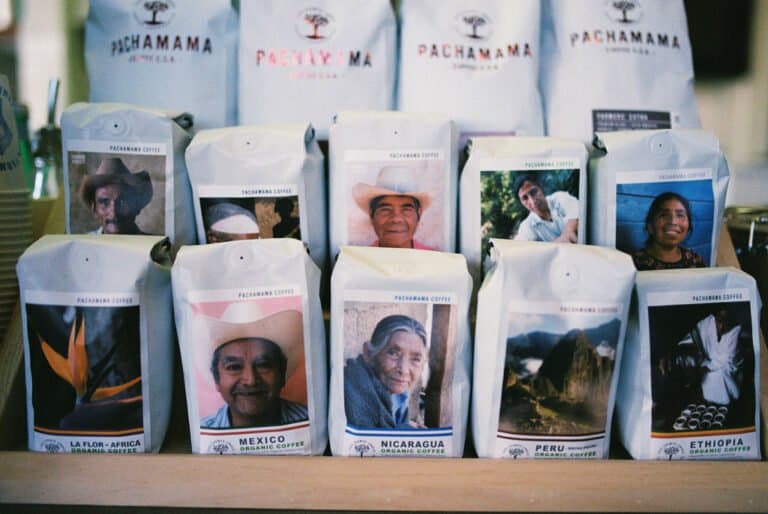
Single Origin
- Peru
- Nicaragua
- Guatemala
- Mexico
- Ethiopia Sidamo
- Ethiopia
- Decaf Mexico
- Decaf French
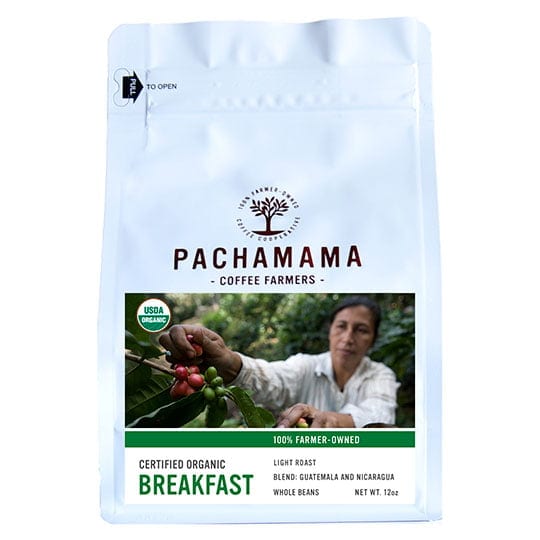
Blends
- Breakfast Blend
- French Roast
- Espresso
- Cold Brew
- Harvest Blend
- Farmer’s Blend
- La Flor
- Five Sisters
- The Bridge
Espresso
- Espresso
- Decaf French
What Fans are Saying
These people shared their stories and some coffee review about their Pachamama experience. And it makes family growers be more motivated to do better.
Pachamama Coffee…Serving Coffee Boxes to ALL First responders!!!
As weeks go by our communities are getting closer and growing stronger. Pachamama Coffee in Sacramento, Ca, which is 100% Farmer Owned, is a great example of it. They have been serving coffee boxes to ALL first responders in the region, thanks to donations that are coming from YOU. We welcome Pachamama Coffee to our People of Sac Segment!
Alternatives
Another Ethiopian coffee origin worth trying if you’re on the search for the best Ethiopian coffee is from Volcanica Coffee. I like this with a French Press and it’s a great start to your day.

Ethiopian Yirgacheffe Coffee (Organic)
Origin: Yirgacheffe
Cupping notes: Sweet and fruity-toned
Flavor notes: Hints of pineapple guava, ripe strawberry, and dark chocolatey notes with lasting lavender-like aroma and a plush mouthfeel.
Price: under $20
Ethiopian-Guji Coffee (Organic)
Origin: Shakiso district (Guji)
Cupping notes: Balanced and sweet with winey berry and floral aftertaste
Flavor notes: with high-toned sweet Jasmine notes and hints of roasted cacao nibs, almond and butter.
Price: under $20
Yet, if you’re looking for a roast that you can brew with French Press, Pour-over, Drip, Percolator, or have it in cold brew, some of the Grounds and Hounds blends might be just right for you. These are:
Morning Walk (Light Roast)

Origin: a blend from Guatemala, Peru, and Sumatra (100% Arabica)
Cupping notes: Medium, balanced with savory tasting notes of caramel and toasted nuts
Flavor notes: Hints of toffee, toasted pecan, sweet cherry, and cocoa undertones.
Price: under $20
Alpha Blend (Dark Roast)
Origin: Blend from Colombia, Guatemala, and Sumatra (100% Arabica)
Cupping notes: Full-bodied, rich and smoky with incredibly smooth finish
Flavor notes: Hints of vanilla, cocoa, ginger and nutmeg undertones.
Price: under $20
Save 15% Off Your Order + Get FREE SHIPPING over $50 – click this link and use the coupon code BigCupofCoffee.
Conclusion
People have a lot of expectations when it comes to coffee. Pachamama makes the point that coffee appreciation isn’t always about how a barista brews it but about the coffee beans, the growers, and the cultivating environment. A cup of coffee probably has a backstory and that’s what Pachamama wants to share.
Writing this coffee review through the Pachamama lens only shows that coffee is much tastier when you appreciate it from seed to cup.
Have you tried any of Pachamama Coffee’s best sellers? Which of the coffee blends and origins would you recommend? Please share with us your Pachamama thoughts at the comments below.


